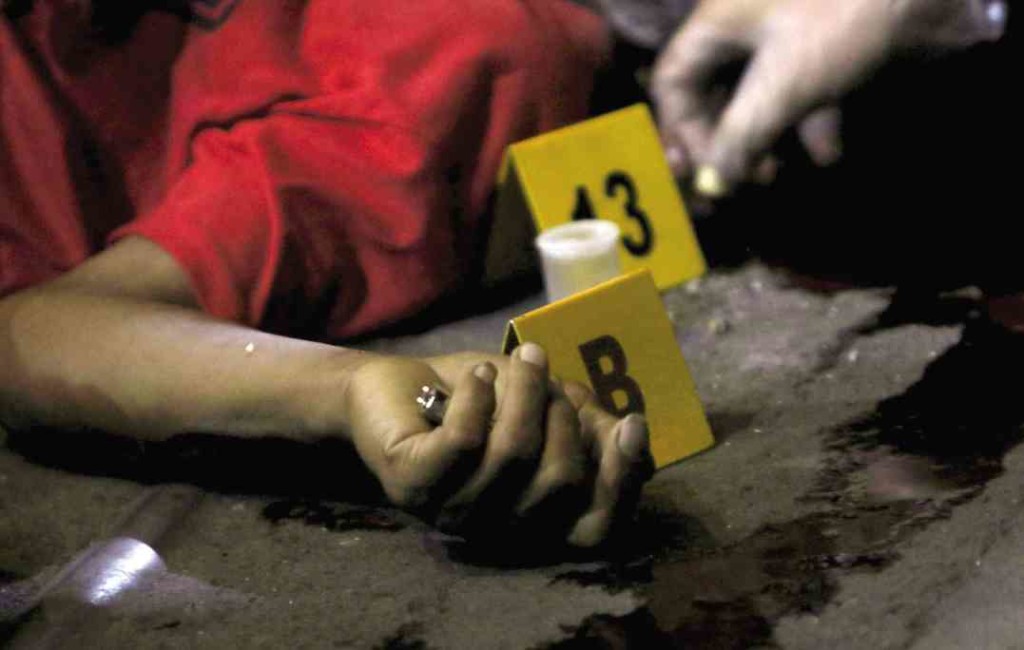
INQUIRER FILE PHOTO
MANILA, Philippines — The United Nations Human Rights Council (UNHRC) has dealt a “serious blow” to victims of abuses in the Philippines by failing to press for a continuing scrutiny of the rights situation in the country, a global human rights watchdog said on Wednesday.
The statement was made by the New York-based Human Rights Watch (HRW) as the UNHRC was wrapping up its 51st session in Geneva, Switzerland, with member states taking no further action on the Philippine situation despite calls from the Office of the High Commissioner on Human Rights (OHCHR), international and local civil society organizations and the families of victims of abuses.
HRW Geneva director Lucy McKernan said this inaction was a complete turnaround from 2020, when member states passed a resolution for a UN Joint Program (UNJP) with the Philippine government to improve the human rights situation here.
They did not press for a 2022 resolution despite calls from rights groups which warned that the UNJP failed to get beyond the preliminary phase.
“The UN Human Rights Council’s failure to act on the Philippines is devastating for both the victims of human rights abuses and civil society groups that seek to uphold basic rights,” said McKernan. “The end to council scrutiny of the Philippines reflects especially poorly on the European and other concerned governments led by Iceland that had banded together in 2020.”
“Families of victims had high hopes that the Human Rights Council would continue its scrutiny of rights abuses in the Philippines, but the council let them down,” she added. “The human rights situation in the Philippines remains dire, but as the council drops the Philippines from its agenda, justice and accountability remain as elusive as ever.”
Justice Secretary Jesus Crispin Remulla has assured the UNHRC of the Philippines’ efforts to strengthen domestic human rights mechanisms.
Remulla, along with a Philippine delegation, is in Geneva for the 51st HRC Enhance Interactive Dialogue and Bilateral Meetings, and for the State’s Constructive Dialogue/Revalida with the Human Rights Committee on the International Covenant on Civil and Political Rights.
“The meetings are part of the Philippines’ broader domestic and international engagement on multifaceted human rights and humanitarian issues, including with sustained advocacies for the rights and welfare of the vulnerable, and solutions-oriented collaborative pathways to human rights promotion and protection in the UN system,” the Philippine Mission to the UN in Geneva said in a statement.
During his meeting earlier with United Nations acting High Commissioner for Human Rights Nada Al-Nashif, Remulla discussed how the Philippines can scale up its cooperation with the OHCHR and the Office of the High Commissioner for Refugees.
The justice secretary highlighted reforms to decongest prisons, citing the recent release of 371 convicts who had served their sentences.
Stonewalling
According to the Philippine Mission, Al-Nashif recognized the efforts of the country to address issues such as enhancing accountability, engagement with the UN and the human rights-based approach to drug control.
It said that Remulla also reaffirmed that the Philippines would continue to engage constructively on human rights with the UN and the international community.
But a report by the OHCHR last month highlighted “prevailing rights violations” and recommended the continued monitoring and reporting to the council.
Rights groups involved in the UNJP rejected Manila’s claims that it was cooperating with the UN on the human rights problems.
They said that the government was stonewalling progress either by undermining their participation or by not providing real numbers on the actual cases of human rights violations that would form the baseline to gauge any improvements.
‘Blank slate’
McKernan lamented that without a commitment to the program from the administration of President Ferdinand Marcos Jr., and the political backing by a Human Rights Council resolution, the UNJP is “unlikely to make much progress.”
Even before the Geneva session started, rights and civil society groups were already worried that the UNHRC might treat the Marcos administration as a “blank slate” separate from the Duterte administration, which gained international notoriety for its brutal war on drugs that killed thousands.
But Marcos himself has already expressed interest in continuing the drug war that spurred the 2020 resolution and refused to rejoin the International Criminal Court.
Human rights advocates say that the harassment and red-tagging of activists, journalists and other dissidents continues and former Sen. Leila de Lima, chief drug war critic, remains in detention.
RELATED STORIES
Foreign governments air alarm over PH media killings
Remulla says PH gov’t taking constructive approach on human rights
Biden tells Marcos he wants to talk about human rights